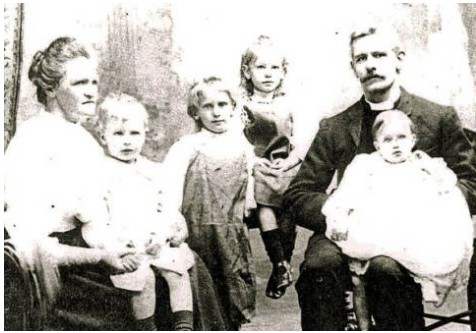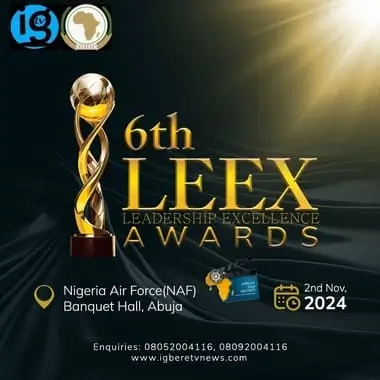A WEEK’S ITINERATION IN THE IBO COUNTRY BY MRS. T. J DENNIS OF ONITSHA
In this epistle of religious adventure, Mrs T.J.Dennis, one of the pioneers of the Christian Missionary work in the Igbo land shares with us the experience she and her team had when they visited the Oka community, now Awka in Anambra State, underscoring in essence, the homely, receptive and independent-communal life of Ndigbo, deeply rooted in their culture and traditions.
By 2.30 a.m. on Monday we were again on our journey. The moon was nearly full and high in the sky. We were carried over the first stream we came to on the shoulders of the young men. The next stream was much more difficult to cross, as it was impossible to be carried, and there was no bridge, so we had to wade through it. The thick foliage of the trees quite shut out the light of the moon an the water looked black and still. It was horrid to feel one’s feet sink into the slippery mud at the bottom of the water. How terrified our mothers would have been had they seen us just then.

Our way now lay through the much dreaded Abam country. “Abam” is the name given to a confederacy of Ibo towns, the leader of which is the King of Aro or Umuchuku. This confederacy is formed for war and raiding purposes. It was plain that the native members of our party were afraid, for when Mr. Smith commenced to whistle they begged him to desist, and we glided along in dead silence. We passed several high trees in the branches of which platforms had been erected for defence purposes againt the Abams.
About 9 a.m. we drew near to Oka, and were cordially greeted by such of the inhabitants as we met on the road. Oka is by far the best and largest town in the Ibo country with the exception, perhaps, of the above-named Aro. The Oka people themselves say that it takes from sunrise to sunset to walk through their town, but this is probably an exaggeration. It is situated about forty to forty-five miles to the East of Onitsha.
The majority of the people are blacksmiths, and in pursuance of their craft travel to every part of the Ibo country, and even beyond its borders. There is scarcely a town or village without its small, primitive smithy, in which the Oka smith not only sharpens and repairs, but also manufactures from the iron and brass imported by traders the various weapons, tools, and ornaments in use amongst the Ibo people.
They never seem to be molested, and contrive to keep the peace with all their neighbours without fighting. They are never accompanied by their wives on their itinerations, and are seldom away longer than three months at a time. Before going to any town they sacrifice to their gods for two or three days that they may be kept safe from all danger, and that they may prosper in their work.
Most of the men we saw in Oka wore some English article of clothing. For instance, one man would wear a sailor-hat, another man a pair of trousers, another a waistcoat. We were surprised to see some of the young men carry whips similar to those used by carters in England. A great man were armed with Snider rifles, and carried themselves with a dignified air, or perhaps, more correctly, a sort of swagger, as though all the world be longed to them.
We were saluted by one young man with a most graceful bow and an English “Good mornin ,” as he raised his sailor-hat. The Oka people certainly seem more civilized than their neighbours, probably because they travel about so much. From what I have said it will easily be seen that the Oka men would make excellent evangelists for the Ibo country, if only they could be converted to Christ.
The women dress their hair most elaborately. Some whom we saw had fantastic ornaments on their heads, not unlike the comb of a cock in shape, and reaching about an inch from the forehead right over the head to the neck. This erection was covered with some red material, and on either side were fastened six pearl buttons.
As we passed through the town we were struck with its clean, well-kept houses and roads. The people certainly take a great pride in having their homes nice. Each house stood in a compound surrounded by a high mud wall. There were small loop holes in the walls at equal distances, through which a gun could be fired in the event of an enemy attacking the town. In each compound also there was generally at least one high tree with a platform in its branches, from which a good look out could be obtained. We noticed also two large, square watch-towers, three times the height of ordinary houses.
When we arrived we were at once directed to the house of our host, who seemed proud to entertain us. As he was a chief of very high standing his house was an elaborate one. The walls were beautifully smooth, and painted over with all sorts of queer designs. The door, boxes, and other wooden articles were quaintly carved. Here we rested during the heat of the day, and in the afternoon went into a large open space, where we preached to the huge crowd which soon gathered around us. We did not disperse till dark.
On Tuesday morning we preached in several of the villages, and in the afternoon went to the ka market. This market is a very large one. The women from all the neighbouring towns come here to trade. There must have been 2000 women in the market when we visited it, and as soon as we appeared they left their goods and went to a respectful distance.
We sat down and began to sing some Ibo hymns, and they gradually summoned up courage to come near to us. After we had got them quiet, some of us preached the Gospel to them. How simply we had to speak to these people! They seemed to have no idea of sin. Everything is so new and strange to them, our appearance as well as our message, so it is no wonder they do not unerstand. Our work would be entirely hopeless if we did not believe in the Holy Ghost.
As we were speaking a lot of chiefs came and joined the crowd, and listened attentively. One man, however, with a most diabolical expression of countenance, jumped into the circle and excitedly addressed the people, saying that we came just to disturb their marketing and to spy out the land, and bidding them go back to their buying and selling. Very few obeyed him. The Rev. S. R. Smith said that any who wished were at liberty to go back to their business, but they preferred to remain and listen. A little later on, a chief, who had, I think, been drinking gin, came up and insisted on shaking hands with us, remarking, as he looked into our faces, “Oh, what noses!”
In the evening some of the chiefs began to grumble. It seems that our host had taken upon himself to invite us without consulting the other chiefs. This they, of course, resented. In fact, there was some talk about fining our host a cow, a sheep and a goat, which were to be sacrificed and dragged round the town to rid it from the pollution of our presence. One thing that annoyed them was that we ladies had come into their country wearing clothes, the custom in Oka being for the women to go almost naked.
The Rev. S. R. Smith sent a message to the chiefs saying that we wished to see them. So, early next morning (Wednesday), about twenty of them came. Mr. Smith told them why we had come, and explained that we had been invited, and had come expecting to be welcomed as friends. They gave a very ambiguous reply, and promised to call a meeting of all the chiefs of every village, and afterwards to send to us a deputation consisting of three chiefs from each village. After a little further discussion, however, they changed their minds and said they would go and see the king and bring back word from him. As we intended to start back to Onitsha soon after midnight, we told them to make haste.
About 8.30 p.m. the came back in a most jovial mood. They seated them selves and saluted us in the customary manner, and then gave us the king’s message, which was to the effect that his Majesty was sorry that we had not been able to see him, wished that we could stay longer, and begged us to come again another time. He sent us a fine goat and a good number of yams as a present. After some further conversation the chiefs left us in time to enable us to get a few hours’ sleep before starting on our return journey, which we did soon after 1 am on Thursday.
We regretted seeing so little of Oka after all, but came away deeply impressed with the importance of claiming Oka for Christ. We learnt that Aro, the chief city of the Abams, was only a day’s journey from Oka, and we longed to go on to that place. Some months ago my husband planned an itineration to Aro, but some men, who were to have been our leaders, disappointed us, and so we were not able to go.
We came back by exactly the same route, and, travelling in the night and resting during the heat of the day, reached Onitsha on Friday evening, very tired but very thankful. Mr. Smith had a great deal of difficulty with the carriers. On our return journey each man invariably went for the lightest load, and our start was often delayed an hour because of the disputing. At almost every stopping place some of the carriers bolted, which necessitated hunting for new ones.
Source:THE CHURCH MISSIONARY INTELLIGENCER: A Monthly Journal of Missionary Information, September, 1899
The Overview:
With the narration, our minds are awakened to the basic realities of the igbo society. One, she draws our attention to the fact that Ndigbo, prior to the emergence of the state of Nigeria, were largely organised and independent with the best suitable system of administering their society, she did well to refer to the igbo society as a country. Igbo society was democratically communal.
Second, Ndigbo as a people accepted education with open hands. They only resisted the forceful annexation of the igboland by the British colonial masters. This does show that as a people, Ndigbo are naturally inclined to Liberation, independence and freedom. No wonder whatsoever, should be expressed in the agitation of an Igbo person when he feels intimidated or his rights are denied. It is a natural tendency that Ndigbo clamour for their rights.
Three, Ndigbo are real custodians of culture. They love their culture and traditions. On the other hand, they love education which of a truth, can liberate the mind from the shackles of ignorance. And in some way, education which is a western tool, is readily in contention with traditional ideals which is a tool and the essence of existence of the igbo people. Therefore, it is safe to assert that most educated persons of the igbo society are partially mindless about cultural ideals yet, some have manged to reconcile the two indispensable realities and instruments of life.
As we lend our thought to the epistle, let us appreciate the naked truth that Ndigbo are just a unique people with unmatched ability for survival, thansk to the revelation of Mrs. T.J.Dennis.







